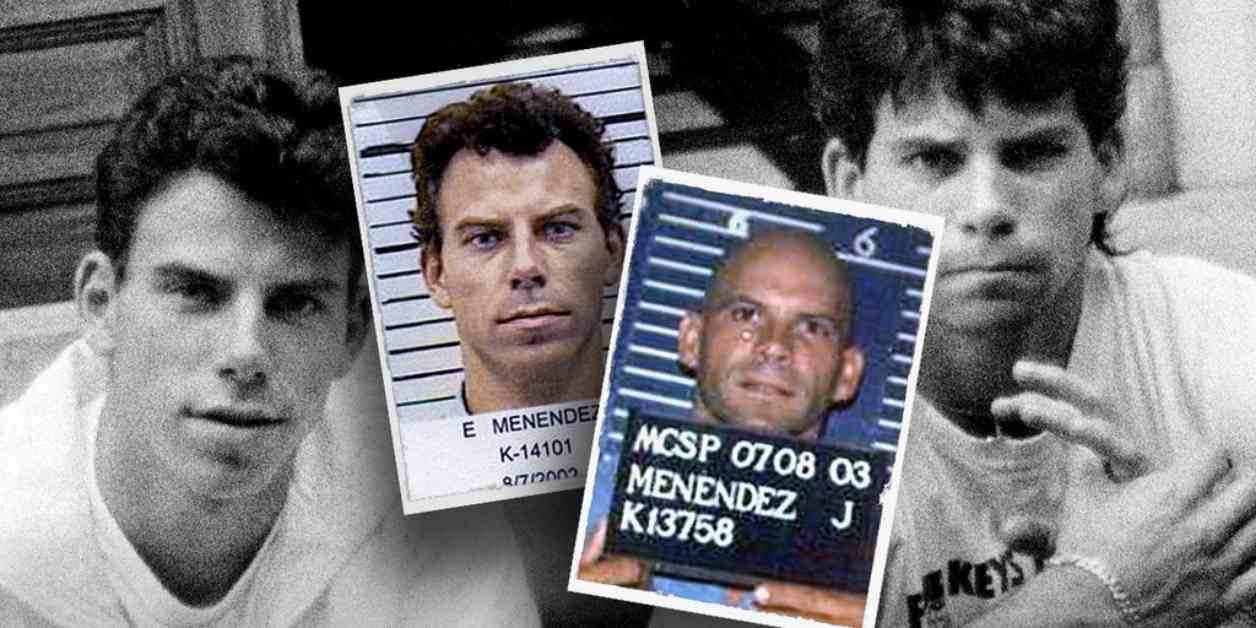Convicted double murderer Erik Menendez, one of the notorious Menendez brothers, recently shared his harrowing experiences of “bullying and trauma” endured during his nearly three decades in California’s prison system on a candid episode of the “2 Angry Men Podcast.” Speaking with hosts Harvey Levin of TMZ and his own attorney Mark Geragos, Menendez opened up about the challenges he faced while incarcerated, recalling the harsh realities of prison life in the past tense. “Prison was hard for me,” he recounted. “I faced a lot of bullying and trauma – it was a dangerous environment.”
Both Erik and his brother, Joseph “Lyle” Menendez, are serving life sentences without the possibility of parole at California’s Richard J. Donovan Correctional Facility. However, a recent Golden State law offers them a glimmer of hope, with the potential for reduced sentences and eventual freedom looming on the horizon. This unprecedented opportunity has sparked a wave of discussions and emotions surrounding their case, reigniting debates on justice, rehabilitation, and the complexities of the penal system.
## A Glimpse into the Menendez Brothers’ Journey Behind Bars
Despite their heinous crimes, Erik Menendez has garnered praise for his exemplary behavior throughout his incarceration, a stark contrast to the violent environment he described on the podcast. Menendez recounted being a target of bullying and violence, emphasizing the common plight of inmates who find themselves at odds with prison gangs. Reflecting on the hardships he faced, he acknowledged the inherent suffering that permeates the prison experience.
The brothers’ separation early in their sentence compounded their challenges, with Erik recalling the anguish of learning about Lyle’s assault and feeling helpless to protect his sibling. Only after years of being apart were they finally reunited in 2018, offering a brief respite from the isolation and vulnerability they had endured for decades. Erik’s poignant recollection of these moments humanizes their story, shedding light on the emotional toll of long-term incarceration and the enduring bonds of family in the face of adversity.
Despite the grim conditions they initially encountered, Erik expressed hope for positive change within the California Department of Corrections and Rehabilitation, citing incremental improvements over the years. By acknowledging the efforts of prison officials and emphasizing the importance of reforming the correctional culture, Erik underscores the transformative power of rehabilitation and second chances. His commitment to working collaboratively with authorities to effect change reflects a nuanced understanding of the complexities inherent in the criminal justice system.
## The Road to Redemption: Hope Amidst Uncertainty
As the Menendez brothers await their upcoming resentencing hearings, the specter of impending freedom looms large, casting a mix of apprehension and optimism over their future. The protracted legal proceedings, marked by delays and setbacks, underscore the arduous path to redemption the brothers have embarked upon. Despite exhausting all avenues of appeal in 2005, their unwavering commitment to rehabilitation and good behavior has sustained them through years of uncertainty.
The brothers’ evolving narrative, punctuated by legal battles and personal reflections, paints a nuanced portrait of redemption, forgiveness, and the enduring quest for justice. Their bid for freedom, fueled by fresh evidence and renewed hope, challenges conventional notions of guilt and innocence, inviting a reexamination of the circumstances that led to their fateful crimes. As the legal saga unfolds, the Menendez brothers stand at a crossroads, poised between past transgressions and future possibilities, navigating a complex terrain of legal, ethical, and emotional complexities.
With each passing day, the Menendez brothers confront their past, their present, and the uncertain horizon that lies ahead, grappling with the weight of their actions and the hope of redemption. As they navigate the intricate web of legal proceedings and personal reckonings, their story serves as a poignant reminder of the enduring quest for justice, healing, and transformation in the face of unspeakable tragedy. The brothers’ resilience, humanity, and capacity for change offer a compelling narrative of redemption in the most unlikely of places, shining a light on the enduring power of hope, forgiveness, and the relentless pursuit of second chances.

